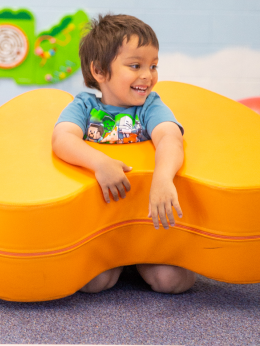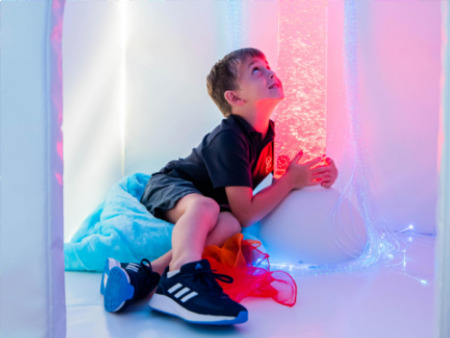Sometimes I feel like I am in the home stretch. Will has been doing amazingly well at school. In the past several weeks he has had a tremendous breakthrough in language, both verbal and written. He talks non-stop, sometimes to a point where I almost want to tell him to stop talking – please, for just five minutes! That's seems awful, since I spent more than half his life urging "use your words!"
I've realized there is no home stretch. There are just simple moments and tiny victories. My friend Bridget said it best – "it's kind of like you are always waiting for that other shoe to drop." What will I need to work on next? What is he working on at school that I should be supplementing at home? What did he eat today?
Wandering is one of my biggest fears. Part of me knows that I have just watched far too many episodes of CSI. The other part knows that this is a very serious concern for many parents of children with autism. Like me, Will has the attention span of a tiny gnat or the dog from the movie Up! Even the simplest thing can make him stop and change direction in a nano-second. The kid is so damn fast that it really scares me. The one time when he did wander off, I literally turned my back for a second. It was the worst five minutes of my life.
The statistics on wandering and elopement are not reassuring. It is actually more common in children with autism as they get older. Just when you think you're safer because they should have a better sense of things – no such luck. It is important to be prepared. Of all the things I advocate, I still believe this is the most important. The most common cause of death in people with autism is drowning – most often this happens during a family outing and usually in a nearby body of water. Please don't kid yourself into thinking your child won't do it – eventually they will, and when they do, it will be of the utmost importance for you to be calm, level-headed and to know what to do. Will has since had several swimming lessons.
This is also the reason I advocate telling people that my son is on the spectrum. My husband was opposed at first, thinking people might treat him differently if they knew. When I explained to him why it was so important – it takes a village to keep track of him – he agreed that we should be more vocal about it. Almost everyone in my neighborhood knows that Will has an autism spectrum disorder. They know that if they see him wandering around without me, he probably shouldn't be and they need to call me. They also know he has a tendency to regress when overwhelmed, so he might not respond if he is extremely scared or hungry or cold.
Other precautions I've taken include getting his picture to the local police department, making sure that wandering procedures are in place in his IEP (he is always first in line with a buddy right under the teachers nose), letting the bus driver know (so she can make sure he is across the street before she pulls away). The conversations with Will have been endless – reminding him that he needs to answer me when I call his name, explaining that if I can't see him he may not be safe, reinforcing the impact (literally and figuratively) of street safety. These things may not seem all that different than what one might reinforce with a typically developing child, however they are that much more important in a child with autism. Children on the spectrum often have a diminished sense of fear or don't truly understand dangerous situations.
The National Autism Association, in collaboration with AWAARE, provides toolkits for caregivers and one for first responders. You can also shop for safety items to help keep your child safe, at home and out in public. My favorite – the ChildIDCode stickers and iron-ons. They also offer a listing of special-needs swimming lessons around the country.
Twitter: @walkwithwill



















Comments